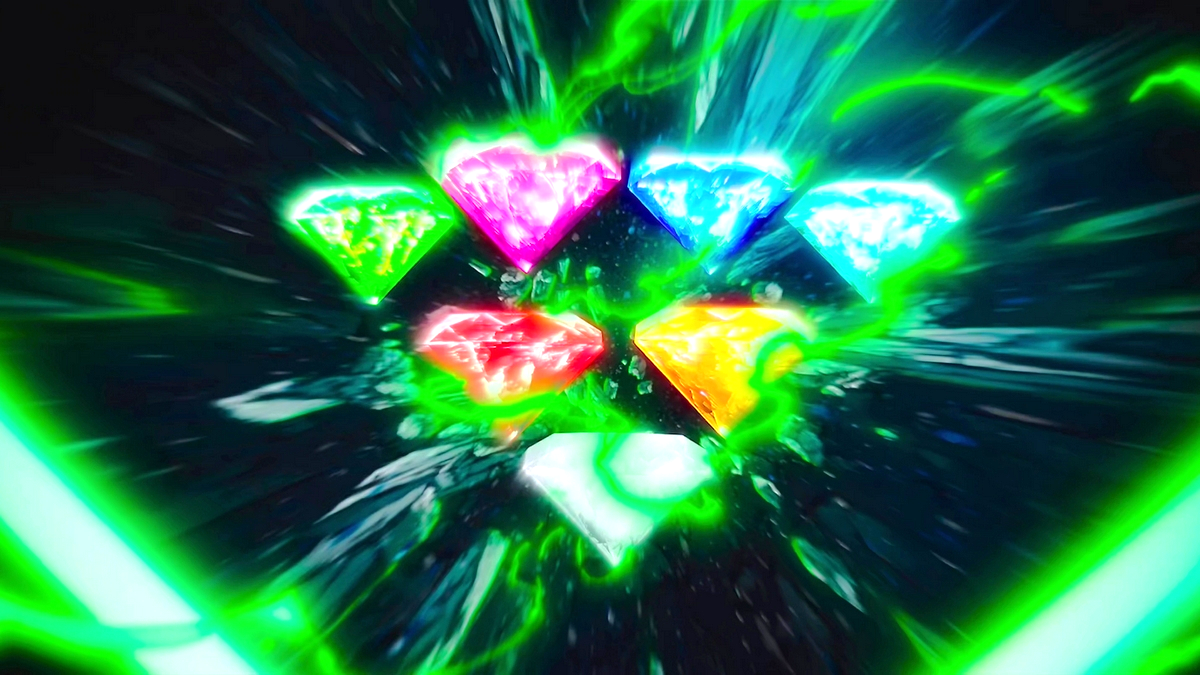
In a world of Fallouts and Mass Effects, Divinity: Original Sin isn’t the sort of role-playing game you expect to find on consoles – at least, not on the scale it flaunts. A wonderfully crafted tribute to the genre’s bygone aspirations, developer Larian Studios’ tribute to the golden era of computer RPGs like Icewind Dale and Planescape: Torment returns the genre to its turn-based strategy roots on an economy budget in high fashion. Just months after its summer release, Original Sin’s Enhanced Edition is finally with us, and its delivers the cleaner, crisper version of its predecessor with every bit of its punishing charms intact.
Set in a world where a dangerous strain of magic called the Source must be sought out and eradicated by elite warriors called Source Hunters, Original Sin follows your duo of Hunters and their various companions as they attempt to thwart the evil plans of a cult of Sorcerers called Immaculates. The main plot sees you investigating a murder in the city of Cyseal, but like its predecessors, Original Sin leaves many of its secrets up to you to explore on your own time. From there, it’s all an endless montage of side questing, battling, and exploring. And that’s just enough to keep you playing the first twenty hours.
For at least the first five hours, the game’s slow opener will probably see you doing little else other than talking to people and finding out the hard way what happens when you butt heads with the wrong person. In the absence of traditional tutorials, the game leaves you to work out its rather complicated experience and character systems yourself.
The system is slightly odd, though, as a high percentage are multifaceted missions that take several hours to see through, many of them branching into other quests at various tangents. Frustratingly, you can’t simply opt to track specific quests, and they’re all displayed on the mini-map once you have a location for them. If you have no location, you’re stuck going door to door to find the answers you need. It’s infuriating, and can make even simple tasks a bit of a chore.
The game’s story is standard action-RPG fare for series veterans and its plot points never seem to stray far from tropes of the genre. Elves, orcs, and magic swords are the order of the day for Original Sin, which seems reluctant to break any new ground, though little about the game demands it. The script is awash in gobbledygook and its cast of characters are mostly composed of silly caricatures, but the central premise is enough of a framework to justify you running around looking for some magic stones to save the world for a good sixty hours.
Character generation may be one of the game’s most unique strengths. While it doesn’t boast the most robust facial creator, Original Sin has an overwhelming amount of variety when it comes to classes, skills, and specializations.
You begin with two characters who can be either male or female. You get to name them and decide on their looks, before selecting a class from twelve archetypes, including Inquisitor, a magic-based class new to the Enhanced Edition. Fighter, Rogue, Ranger, Knight, Witch and Cleric are all available and you can then adjust starting stats and abilities to further mold them to your play-style.
It’s important to create two characters who compliment each other, such as one ranged and one melee, or a sneaky backstabber and a powerful magician, but really it’s up to you, and you can recruit two other party members from a varied selection you’ll meet in the field. Your two Source Hunters are given a variety of interesting dialogue opportunities and feel like a cross between Spanish Inquisitors and sheriffs straight out of the Wild West, though none rocking a red afro and midriff like my Dick and Jane.

Just how far they choose to go is up to you. Although the game doesn’t feature any kind of formal good or evil rating, even the smallest actions can have consequence, or more accurately, the consequence they would have everywhere but video games. If you’ve ever wondered how Link can go around breaking into people’s homes in The Legend of Zelda without suspicion, then you’ll find out here. You can kill and steal whatever and whoever you want if you’re sneaky enough, but not without repercussions, whether it’s the villagers crying wolf or making a literal deal with the devil behind bars.
Freedom is not so free in the world of Original Sin. While problems rarely demand one solution, the resources to obtain them often have to be earned in full. Most locks can be picked, most doors can be bashed down, or there’s always talking if that’s your style. Charisma Pet Pal will persuade people and animals to open up, respectively, while a high Perception may reveal hidden secrets in the environment. Holding down X will search your immediate area for loot-worthy containers or stashed goodies, and it’s rare to enter a new area and find nothing worth snatching. There’s a massive amount of armor and weapon combinations, and more skills than you can wave a wand at. Incidentally, wands are a new weapon class in the Enhanced Edition, allowing for quick-fire casting from the skill bar. They work similar to scrolls and spells, only they don’t run out and there’s usually no cool down.
The fluidity of its turn-based combat system is easily what sets Original Sin apart from its modern peers. Designed in the vein of Final Fantasy Tactics and XCOM, each character has a set number of action points to use each turn, which can be spent on moving, attack, casting spells, or using items. Everything you do costs Action Points, which you have in limited supply as decided by your stats, gear and character build. Ranged and melee classes have a variety of Stances they can drop into to bolster different attributes, while casters have boast a dizzying number of spells, each lending a critical level of decision-making to every battle.
You can further assign up to thirty actions on the skill bar, from simple attacking and fleeing to using potions, grenades, antidotes, special abilities and spells. Characters can learn the base level of most spells as long as they have a point in the umbrella ability (i.e. Man-at-Arms for melee skills, Scoundrel for rogue skills, Pyromancy for fire magic), allowing you to build whichever party you choose.
While you may level up slowly in Original Sin, you won’t be picking up skill or ability points at a rate of knots. Instead, you can buy skill books from vendors to learn new abilities, a refreshingly unique process compared to ye old level grinding. The related bartering system is unique in that almost everyone can be traded with, and sometimes the most unlikely characters will have some really cool stuff in their inventory. Likewise, foraging for herbs and materials, crafting tools and empty potion bottles and then experimenting with the Combine function can yield significant results.
The game supports a relatively uncluttered interface. It helps of course that the combat is turn-based, but much like XCOM before it this is proof that complex control systems can be made to work on a gamepad without any real inconvenience. The inventories are still a pain to use, but they were just as cumbersome on the PC, so that’s nothing new. While not an obvious choice for a console port, Larian has done a great job repurposing their sprawling dungeon-crawler to fit consoles, not least in re-mapping a keyboard interface onto the controller in a way that feels intuitive for the most part. It can seem a little fiddly at first, but once you know your way around, it’s a refreshingly uncluttered menu system.

In Divinity: Original Sin, the environment is just as much a part of your toolkit as the swords on your belt. Like many RPGs, you wield all the classical elements: earth, air, fire, and water. This, however, goes much further than just saying a particular item or monster has an affinity with one or the other. You can further ignite oil or gas, freeze or electrify water, either with spells or bombs. You can even carry candles, ignite them during a fight and throw them at explosive barrels or puddle of oil to damage your enemies. Weather patterns can be doubly helpful, but the game offers plenty of other surprises – including simply trying to talk yourself out of trouble in a rock-paper-scissors battle of wits that’s about as amusing as it sounds.
The Enhanced Edition supports a number of new additions, including polished graphics, and fully voiced dialogue, the latter of I’m still not sure was a great idea given its grating attempts at old world accents. Dual-wielding weapons and a more tactile camera, both of which are available for free on PC, are also featured along with slightly more vibrant character models. Its reluctance to offer any real guidance, however, still serves as the game’s only real eyesore.
While Original Sin’s lack of explanation is an otherwise refreshing challenge, it’s not hard to imagine how your time might be better spent than getting one-shotted by the exploding undead by accident for an extra hour of game time. That it offers no post-game content to speak of is to be expected of its lengthy campaign, but it can’t help but feel disappointing that it simply seems to end without more pomp or circumstance.
The game features split screen co-op, allowing you to plow through the entire thing on your own, but having a real-life friend to join you adds an additional layer to the characters’ constant in-game banter. Original Sin allows for full story, drop-in, dropout co-op, and the dynamic split screen means you can literally go and do two things at once – you can even divvy up the party, and magic pockets allow you to send gear between each other. It’s simple to initiate, too, though it’s often unwise to spread your party too thin.
Divinity: Original Sin may not be for the faint of heart, but it’s by far the most rewarding, if not punishing example of Larian’s RPG prowess yet. That it works so well on a console is a minor miracle, and proof that it’s not budget or technology that makes a great game, but a spirited developer. Though it may amount to more of a photo album of days gone by than serve as a major innovation, Larian’s passion is as infectious as the of the universe they’ve created. While Divinity: Original Sin may not be the RPG that brings back the good old days exactly like you remember them, but it’s come closer than most could ever lay claim to.
This review is based on the PS4 version of the game.






